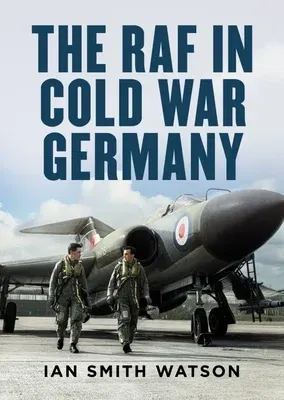Ian Smith Watson
(Author)The RAF in Cold War GermanyHardcover, 29 November 2022

Qty
1
Turbo
Ships in 2 - 3 days
In Stock
Free Delivery
Cash on Delivery
15 Days
Free Returns
Secure Checkout

Print Length
284 pages
Language
English
Publisher
Fonthill Media
Date Published
29 Nov 2022
ISBN-10
1781558426
ISBN-13
9781781558423
Description
Product Details
Author:
Book Format:
Hardcover
Country of Origin:
GB
Date Published:
29 November 2022
Dimensions:
23.6 x
15.39 x
2.79 cm
ISBN-10:
1781558426
ISBN-13:
9781781558423
Language:
English
Pages:
284
Publisher:
Weight:
616.89 gm